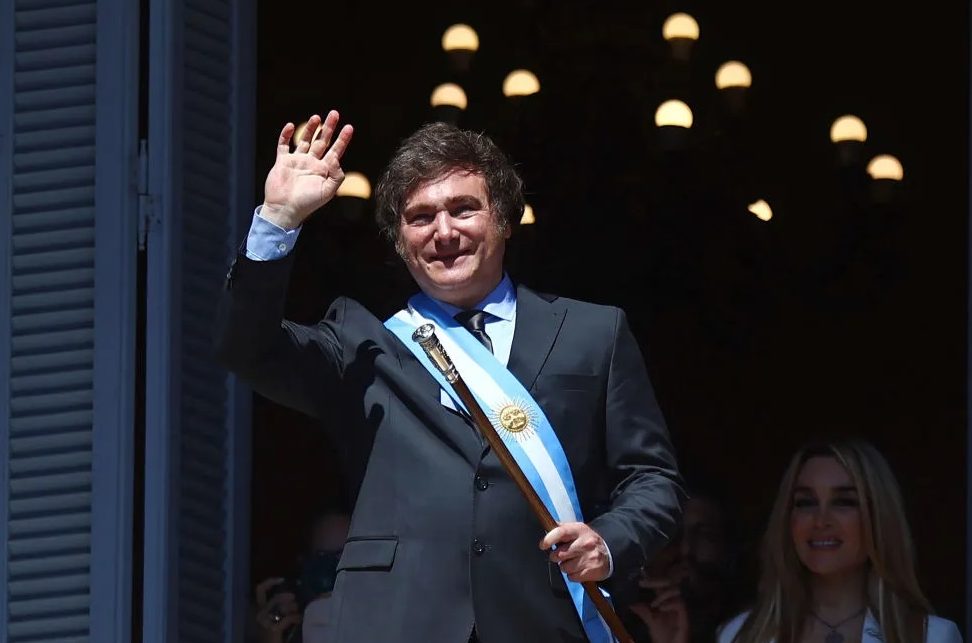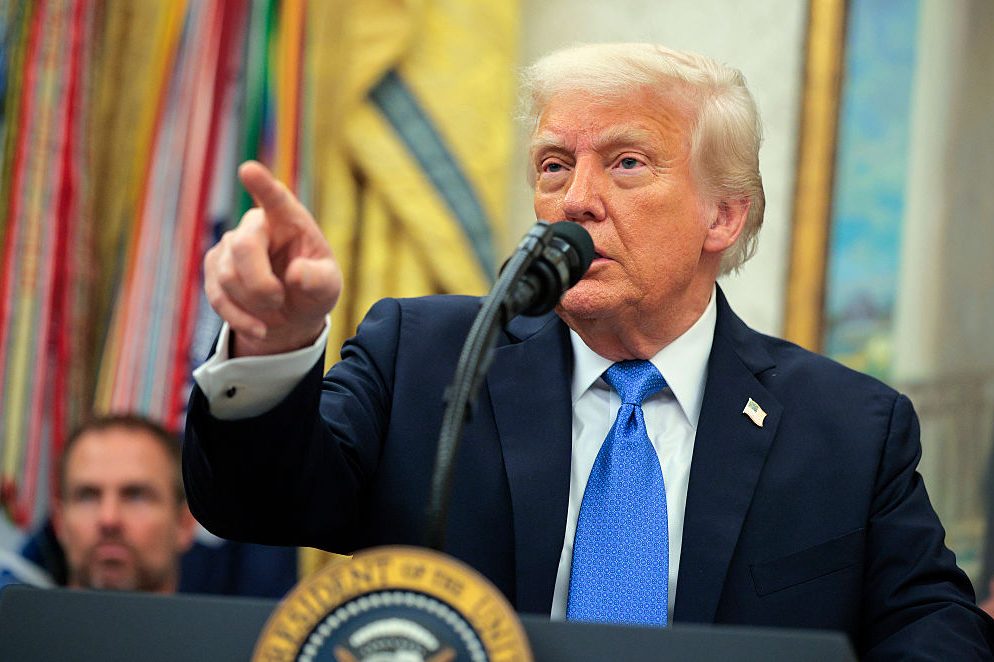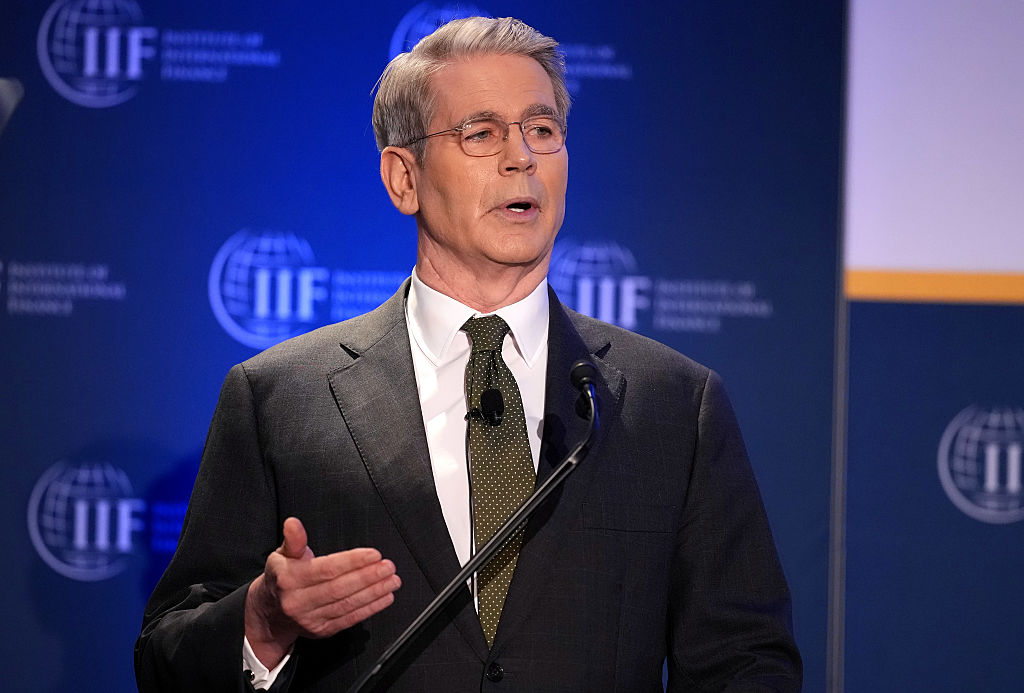When Liam Byrne of Britain’s Labour Party left a note for the incoming coalition treasury team in 2010 which said “I’m afraid there is no money,” it was meant as a joke. When Argentine president Javier Milei sent a similar message in his inauguration speech on Sunday, it was far from comedy. It was an honest assessment of the seriousness of the situation faced by South America’s second-largest economy.
Milei won last month’s election thanks to an anti-establishment campaign in which he heavily criticized the country’s political classes and promised drastic change. It was his penchant for cloning dogs and bringing a chainsaw to campaign rallies that earned him international headlines, but it was something far simpler that appears to have led 56 percent of Argentines to choose him as their next president: the economy.
Even in a country used to living with economic crises, the situation today is bleak. Argentina has a little over three months to make a $10.6 billion payment to service its gargantuan debt to the International Monetary Fund, the total of which stands at $45 billion. This will be a tough ask while it runs a trade deficit in the tens of billions and is experiencing triple-digit inflation.
Even in a country used to living with economic crises, the situation today is bleak
Milei’s flagship pledge — to close the central bank and dollarize the economy — will also be difficult to achieve due to the country’s reserves of dollars being effectively empty. His decision to appoint the relatively moderate Luis Caputo as economy minister suggests this plan is on ice for now. All of this added up to an inauguration speech far more grounded in realism than the fiery rhetoric that characterized his campaign as he warned of the need for “shock treatment; to kickstart the economy.”
“We don’t have alternatives and we don’t have time,” he said, as he warned that the actions of previous governments had left the country on the brink of its “biggest crisis in history.”
“We know that in the short term the situation will worsen, but soon we will see the fruits of our effort, having created the base for solid and sustainable growth,” he said. He has promised that the forthcoming cuts will affect the public sector rather than the private sector. But that will not be particularly reassuring to the huge swathes of Argentines employed by government.
In the weeks since the election victory, Milei and his allies had already been warning that the country would need to wait for his most drastic changes. Inflation could take as long as two years to get under control, the new president has said. There is also the matter of getting things done in Congress, something which could prove difficult as Milei’s party lacks representatives. The first test will be his “omnibus” bill, a mighty tome of deregulations and reforms said to come in at 1,500 pages.
There was a note of optimism amid all the gloom. “One hundred years of failure aren’t undone in a day. But it begins in a day, and today is that day,” Milei told his supporters. He has also not given up on plans to shutter a number of government ministries, including those dedicated to women, the environment and science. But whether he is allowed the time to finish what he started will be a crucial question. Some analysts believe Milei will struggle to complete his term when he comes up against the all-powerful machine of Peronism, the political movement that has ruled Argentina for most of the past eighty years. Some are predicting a wave of protests, which could turn violent, as the reality of recession hits and poverty — already affecting an estimated 45 percent of the population — soars. Dr. Julio Montero, an associate professor at the University of San Andres, points out that Milei is just the fourth non-Peronist president since 1983, and two of the others — Raúl Alfonsín and Fernando de la Rúa — were unable to finish their terms.
A new movie is set to hit cinemas in Argentina this week. The synopsis of Chau Buenos Aires tells the story of Julio, a tango musician in the capital who, in the middle of the country’s 2001 economic crisis, harbors dreams of emigrating to Europe. These dreams are crushed when the government limits the amount of pesos the public can withdraw each week and he is forced to begin selling his possessions. Argentines today, who say they are simply trying to get to the end of each month, will be hoping the film’s release is not a portent of things to come.
This article was originally published on The Spectator’s UK website.


























Leave a Reply